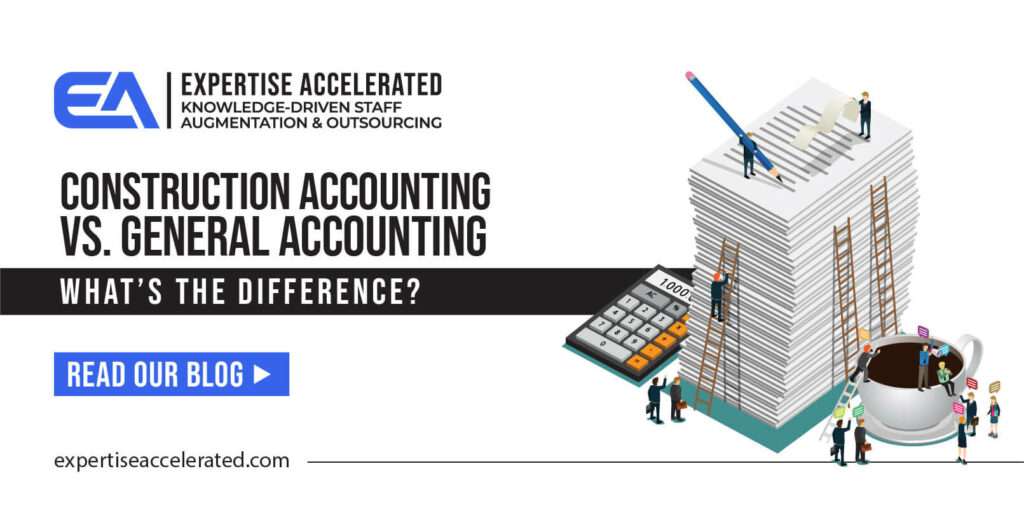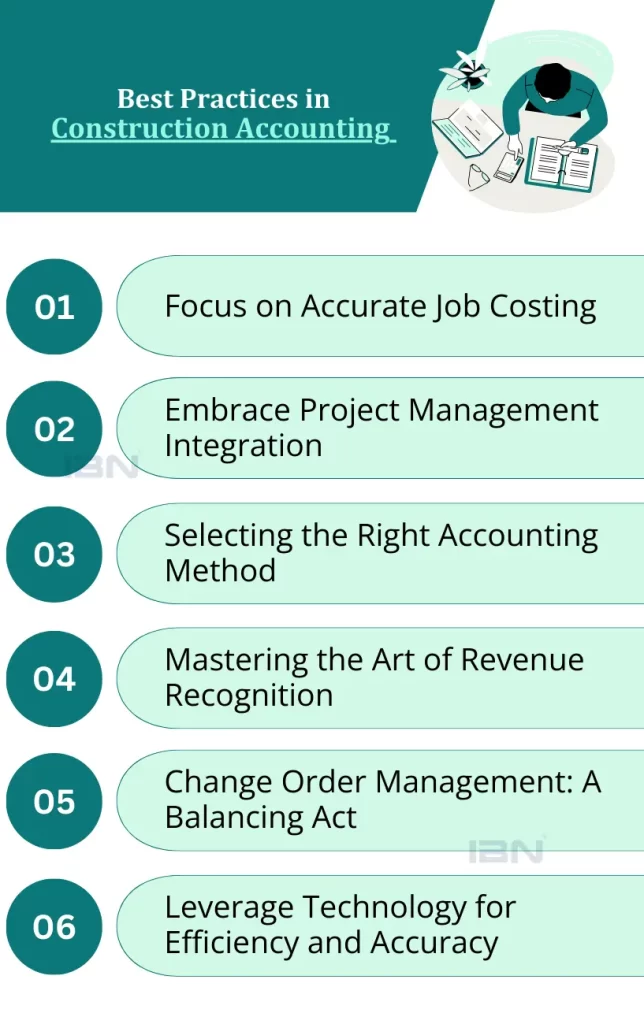Understanding the Role of Construction Accounting in Effective Financial Management
Exploring the Importance of Construction Audit in the Building Industry
The building and construction sector runs under distinct financial challenges that necessitate a customized strategy to audit. Building and construction accounting not only guarantees the accuracy of economic coverage yet additionally plays an essential role in task management by making it possible for reliable task costing and source allocation. By recognizing its essential concepts and advantages, stakeholders can significantly influence project end results. The intricacies fundamental in building and construction audit raise concerns concerning best practices and the tools readily available to handle these complexities efficiently. What strategies can building and construction firms carry out to maximize their monetary processes and drive success?
Special Obstacles of Building Audit
Regularly, building and construction accounting provides distinct obstacles that distinguish it from various other fields. One primary difficulty is the complex nature of construction tasks, which commonly include numerous stakeholders, varying timelines, and varying laws. These variables necessitate precise tracking of costs connected with labor, products, tools, and expenses to preserve job success.
Another substantial obstacle is the need for exact work costing. Building firms should allot expenses to details tasks accurately, which can be difficult as a result of the long period of time of jobs and the potential for unanticipated expenditures. This demand demands durable accountancy systems and methods to make sure specific and prompt financial reporting.
In addition, the construction industry is vulnerable to transform orders and agreement modifications, which can additionally make complex financial tracking and forecasting. Effectively accounting for these modifications is essential to avoid conflicts and make certain that tasks remain within budget plan.

Trick Principles of Building And Construction Accountancy
What are the foundational concepts that lead building accounting? At its core, building and construction accountancy focuses on precise monitoring of expenses and earnings related to specific tasks. The first concept is using task costing, which makes certain that all expenses connected to a project-- labor, materials, expenses-- are carefully recorded and allocated. This enables precise success analysis at the task degree.
An additional secret concept is the application of the percentage-of-completion method. This approach identifies income and costs proportionate to the task's progression, giving a much more sensible view of economic efficiency gradually. In addition, building bookkeeping highlights the significance of compliance with bookkeeping requirements and policies, such as GAAP, to make sure transparency and reliability in economic coverage.
In addition, money circulation administration is critical, provided the often intermittent nature of building projects. Timely invoicing and managing settlement routines help maintain liquidity. Efficient budgeting and forecasting are important for anticipating job costs and financial results, enabling far better decision-making and resource allotment. These concepts collectively develop a durable framework that sustains the unique economic demands of the construction market.
Benefits of Reliable Building Bookkeeping
Reliable building audit supplies many advantages that substantially boost the overall monitoring of tasks. Among the key advantages is boosted monetary exposure, enabling task managers to track expenditures precisely and check capital in real-time. This transparency assists in educated decision-making, decreasing the threat of spending plan overruns and ensuring that resources learn this here now are designated successfully.
In addition, efficient building and construction audit boosts compliance with governing needs and market criteria. By preserving precise financial documents, firms can conveniently supply paperwork for audits and satisfy contractual commitments. This persistance not only cultivates depend on with clients and stakeholders but likewise mitigates potential legal risks.
Additionally, efficient accountancy practices contribute to far better job projecting. By examining previous efficiency and financial fads, construction companies can make even more accurate forecasts pertaining to future project expenses and timelines. construction accounting. This capability improves critical planning and makes it possible for business to react proactively to market fluctuations
Devices and Software Application for Construction Bookkeeping
A variety of specialized devices and software remedies are offered for construction audit, each developed to streamline financial monitoring procedures within the sector. These devices assist in tracking, reporting, and analyzing economic information particular to building jobs, making certain precision and compliance with sector requirements.
Leading software options consist of incorporated building company website management systems that incorporate task budgeting, audit, and administration performances. Solutions such as Sage 300 Building And Construction and Property, copyright for Service Providers, and Perspective View offer includes tailored to manage task setting you back, payroll, and invoicing, making it possible for building firms to preserve specific financial oversight.
Cloud-based applications have obtained appeal due to their accessibility and real-time cooperation abilities. Devices like Procore and CoConstruct allow teams to gain access to monetary data from several places, enhancing communication and decision-making procedures.
Additionally, building and construction accounting software usually supports conformity with regulative requirements, helping with audit trails and tax obligation reporting. The assimilation of mobile applications more enhances operational effectiveness by permitting area personnel to input information directly, lowering mistakes and hold-ups.

Finest Practices for Building Financial Management
Effective construction bookkeeping counts not just on the right devices and software application yet also on the execution of finest practices for economic administration. To accomplish efficient economic oversight, building and construction companies need to prioritize exact Bonuses and routine task budgeting. This process involves damaging down job costs right into detailed classifications, which enables for much better monitoring and forecasting of costs.
Another essential technique is maintaining a robust system for invoicing and capital administration. Timely invoicing guarantees that repayments are obtained quickly, while diligent capital monitoring helps prevent liquidity issues. Furthermore, construction business ought to adopt an extensive strategy to work costing, evaluating the real costs against budget plans to recognize differences and change approaches as necessary.
Constant training and growth of economic monitoring abilities amongst personnel make sure that the group stays experienced at navigating the intricacies of building and construction accountancy. By integrating these best methods, construction companies can enhance their monetary security and drive job success.
Verdict
To conclude, building and construction bookkeeping acts as a fundamental element of the building and construction sector, resolving unique difficulties and adhering to essential principles that enhance financial precision. Efficient bookkeeping techniques produce significant benefits, including enhanced cash money circulation and conformity with regulative standards. Utilizing proper tools and software application further sustains financial monitoring initiatives. By executing ideal practices, building and construction companies can promote stakeholder trust and make informed decisions, inevitably adding to the general success and sustainability of projects within the market.
Construction accounting not just ensures the accuracy of financial coverage but likewise plays a critical function in task monitoring by enabling reliable job setting you back and source allocation. Furthermore, building bookkeeping stresses the significance of compliance with bookkeeping standards and laws, such as GAAP, to ensure transparency and dependability in financial reporting.
Successful building and construction bookkeeping counts not only on the right devices and software yet likewise on the implementation of finest techniques for financial administration. Continual training and growth of financial management abilities among personnel make sure that the group stays skilled at navigating the complexities of building and construction accounting.In verdict, building and construction accountancy offers as an essential component of the building and construction sector, addressing distinct obstacles and adhering to key principles that boost financial accuracy.